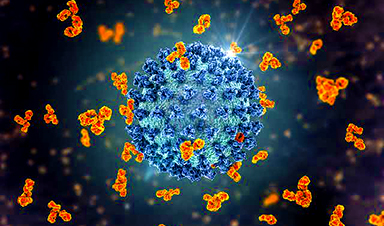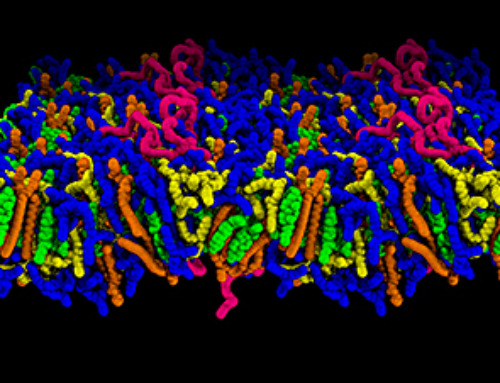A new COVID variant has recently been detected in several countries including the UK, US, India, Australia and Germany.
Called BA.2.75, it’s a subvariant of omicron. You might have also heard it called “Centaurus”, the name of a constellation and given to BA.2.75 by a Twitter user.
The World Health Organization has classified BA.2.75 as a variant of interest, rather than a variant of concern. This means it’s being monitored but there’s not yet evidence it will cause problems.
The numbers of BA.2.75 infections are still relatively low. Most infections in the UK remain driven by the omicron subvariants BA.4 and BA.5. BA.5 in particular is similarly dominant in other countries where BA.2.75 has been detected.
However, BA.2.75 is becoming more common in India (where it was first detected, back in May), suggesting it has advantages relative to current circulating variants. Some have noted that BA.2.75 is spreading in regions of India where it doesn’t have to compete with BA.5, but rather with the variant it evolved from, BA.2.
That said, some data from India indicates that BA.2.75 may have already peaked. And importantly, there hasn’t been a big increase in hospitalisations or deaths in India from BA.2.75.
Given this, BA.2.75 has quickly gained an additional nickname: a “scariant”.
Why are we still seeing new variants?
As most of the global population has now either been vaccinated, infected, or both, variants which can infect people despite their immunity will have an advantage. So SARS-CoV-2 (the virus that causes COVID) is constantly evolving to gain this advantage.
New variants which have mutations that evade our immunity will replicate and spread, leading to waves of infections. We’ve seen this most recently with BA.4 and BA.5.
The memory immune system recognises infections based on molecular structures of viruses and other pathogens. Mutations change the molecular structure of each SARS-CoV-2 variant slightly, making it more difficult for our immune system to recognise and respond to the virus. This is often called “immune evasion”.
Read more: SARS-CoV-2 mutations: why the virus might still have some tricks to pull
The concern around BA.2.75 is that is has picked up a number of mutations, which might indicate that this variant can evade immunity. But there’s no good evidence at this stage that BA.2.75 can evade the immune system in a significant way.
Most of BA.2.75 is structurally the same as omicron and the original Wuhan variant. Although BA.2.75 has picked up a few mutations, it isn’t fundamentally a different virus.
The memory immune system will still act against BA.2.75, which is what we’ve seen with omicron. This immunity might not be enough to stop reinfection, but should reduce the severity of a BA.2.75 infection.
While there are concerns BA.2.75 could spread more quickly than other variants, we don’t have any clear evidence on this yet. It seems to have shown an increase which has levelled off or even dropped relative to a few weeks ago. If this is the case there’s a chance it might even fizzle out in another few weeks.
But, if BA.2.75 does have some immune evasion properties, it could cause another wave through the UK and elsewhere. Still, this would likely spike and then fizzle out like alpha, delta and omicron BA.1.
Improving vaccines could be our best shot
Thanks to vaccination, if we did face a BA.2.75 wave, we wouldn’t expect the level of deaths and hospitalisations seen earlier in the pandemic. But we know large numbers of cases can still cause significant disruption. And importantly, the constant wave of new variants is still a deadly threat to people who are vulnerable. So how do we overcome this?
One solution could be universal COVID vaccines, which would work against any COVID variants. The aim of a universal vaccine is to induce immunity against a very wide range of molecular structures. It’s akin to fishing with a wider net, making it harder for the fish to swim out of the way.
A pan-coronavirus vaccine is a similar concept but would likely try to induce immunity against the molecular structures common to all coronaviruses. As well providing immunity against new SARS-CoV-2 variants, a pan-coronavirus vaccine might also confer immunity against the next coronavirus pandemic. Some of these vaccines look set to move into clinical trials in the next few years.
A second solution may be to produce vaccines which induce better immunity in the respiratory system. These largely involve vaccines given through your nose, training the immune system to make more antibodies in the mucus of the nose and throat.
This type of immunity might help stop SARS-CoV-2 infecting and replicating at the point of entry into our cells, which could slow down the rate at which new variants have the opportunity to emerge. At least 12 of these intranasal vaccines are in clinical trials.
Read more: Coronavirus: once you have antibodies, are you safe?
Right now, I would put my money on BA.2.75 fizzling out without a major wave of infections. But the next omicron subvariant, and the next pandemic, will inevitably come. New vaccine approaches might make us better prepared.
News
NanoMedical Brain/Cloud Interface – Explorations and Implications. A new book from Frank Boehm
New book from Frank Boehm, NanoappsMedical Inc Founder: This book explores the future hypothetical possibility that the cerebral cortex of the human brain might be seamlessly, safely, and securely connected with the Cloud via [...]
How lipid nanoparticles carrying vaccines release their cargo
A study from FAU has shown that lipid nanoparticles restructure their membrane significantly after being absorbed into a cell and ending up in an acidic environment. Vaccines and other medicines are often packed in [...]
New book from NanoappsMedical Inc – Molecular Manufacturing: The Future of Nanomedicine
This book explores the revolutionary potential of atomically precise manufacturing technologies to transform global healthcare, as well as practically every other sector across society. This forward-thinking volume examines how envisaged Factory@Home systems might enable the cost-effective [...]
A Virus Designed in the Lab Could Help Defeat Antibiotic Resistance
Scientists can now design bacteria-killing viruses from DNA, opening a faster path to fighting superbugs. Bacteriophages have been used as treatments for bacterial infections for more than a century. Interest in these viruses is rising [...]
Sleep Deprivation Triggers a Strange Brain Cleanup
When you don’t sleep enough, your brain may clean itself at the exact moment you need it to think. Most people recognize the sensation. After a night of inadequate sleep, staying focused becomes harder [...]
Lab-grown corticospinal neurons offer new models for ALS and spinal injuries
Researchers have developed a way to grow a highly specialized subset of brain nerve cells that are involved in motor neuron disease and damaged in spinal injuries. Their study, published today in eLife as the final [...]
Urgent warning over deadly ‘brain swelling’ virus amid fears it could spread globally
Airports across Asia have been put on high alert after India confirmed two cases of the deadly Nipah virus in the state of West Bengal over the past month. Thailand, Nepal and Vietnam are among the [...]
This Vaccine Stops Bird Flu Before It Reaches the Lungs
A new nasal spray vaccine could stop bird flu at the door — blocking infection, reducing spread, and helping head off the next pandemic. Since first appearing in the United States in 2014, H5N1 [...]
These two viruses may become the next public health threats, scientists say
Two emerging pathogens with animal origins—influenza D virus and canine coronavirus—have so far been quietly flying under the radar, but researchers warn conditions are ripe for the viruses to spread more widely among humans. [...]
COVID-19 viral fragments shown to target and kill specific immune cells
COVID-19 viral fragments shown to target and kill specific immune cells in UCLA-led study Clues about extreme cases and omicron’s effects come from a cross-disciplinary international research team New research shows that after the [...]
Smaller Than a Grain of Salt: Engineers Create the World’s Tiniest Wireless Brain Implant
A salt-grain-sized neural implant can record and transmit brain activity wirelessly for extended periods. Researchers at Cornell University, working with collaborators, have created an extremely small neural implant that can sit on a grain of [...]
Scientists Develop a New Way To See Inside the Human Body Using 3D Color Imaging
A newly developed imaging method blends ultrasound and photoacoustics to capture both tissue structure and blood-vessel function in 3D. By blending two powerful imaging methods, researchers from Caltech and USC have developed a new way to [...]
Brain waves could help paralyzed patients move again
People with spinal cord injuries often lose the ability to move their arms or legs. In many cases, the nerves in the limbs remain healthy, and the brain continues to function normally. The loss of [...]
Scientists Discover a New “Cleanup Hub” Inside the Human Brain
A newly identified lymphatic drainage pathway along the middle meningeal artery reveals how the human brain clears waste. How does the brain clear away waste? This task is handled by the brain’s lymphatic drainage [...]
New Drug Slashes Dangerous Blood Fats by Nearly 40% in First Human Trial
Scientists have found a way to fine-tune a central fat-control pathway in the liver, reducing harmful blood triglycerides while preserving beneficial cholesterol functions. When we eat, the body turns surplus calories into molecules called [...]
A Simple Brain Scan May Help Restore Movement After Paralysis
A brain cap and smart algorithms may one day help paralyzed patients turn thought into movement—no surgery required. People with spinal cord injuries often experience partial or complete loss of movement in their arms [...]





















